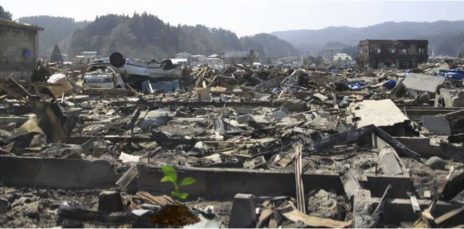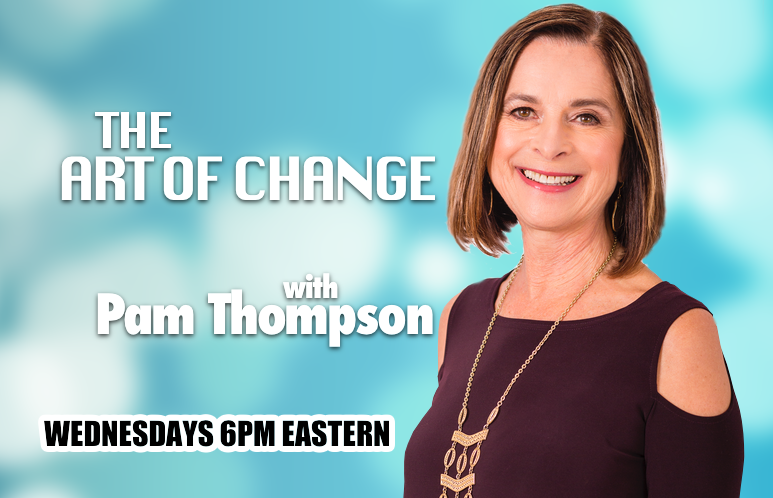
by pam | Mar 26, 2020 | Change, Creative Living, Dealing with Uncertainty, Embracing Change, Women in Business
I believe that embracing change is a creative process
that opens us up to new possibilities.
During these uncertain and
challenging times it may seem counterintuitive to think about change and
creativity together in the same sound bite. That said, believe it or not, this
is the opportune time for you to tap into
and express your creative side.
I encourage you to sit down,
close your eyes and take a few moments to pause and reflect. Ask yourself, what positive changes have come out of this
pandemic for you, your relationships, your community, your business, your work?
For many, it is the
opportunity for the first time to work from home. If this is you, it may be an
enjoyable and productive experience; or it may make you realize that being on
your own, you miss the camaraderie of colleagues, easily get distracted, and
find it challenging to get work done. This is a gift, as now you know that
working on your own at home is not a preferred option for you.
For others who own their own
businesses, initially you may have experienced fear and have had to “let go” of
some of your employees, and yet when you “go inside”, you realize that your
business is not exciting you anymore and hasn’t for some time. You may have
been feeling uninspired but didn’t know how you could exist and earn a living
without your “tried and true” business or job. This is a time to experiment
with different ways of running your existing business. It is a time ripe for innovation.
Now you have the opportunity
to explore what “lights you up” (see https://pamela-thompson.com/believe-that-you-are-here-to-make-a-difference/ for an exercise on how to identify your passions),
and to clarify your core values (refer to https://pamela-thompson.com/do-you-live-in-alignment-with-your-core-values/ for more details), so that when you return to a “new
normal” , whatever that looks like, you will be in a position to reinvent
yourself , whether it be to find that job of your dreams or start that new
business you’ve been putting off for some time, perhaps years.
What about key relationships in your life? What realizations has this time of social distancing “brought up” for you? It could be the conscious awareness that connection and regularly speaking with friends and family is really important for you. I’ve found that I want to call and FaceTime or Skype with close friends, rather than text or email them. I feel a strong need to be in community. Fortunately, I am part of a Women’s Circle that meets face-to-face every 2 weeks. We met via Zoom for the first time this past week, were creative with our process, and it worked really well. A fun and creative activity my husband and I have planned for this evening is a virtual birthday party for one of our young granddaughters.
A tool I’ve found helpful
during these times is journalling using writing prompts such as: What is the silver lining in this
experience? Have my priorities changed? What is most important to me? How can I
change my life so each day I focus on those things and people that are most
important to me?
I invite you to begin meditating daily if this is a new experience for you and/or something you’ve been “putting off” and meaning to do for a while. I find Deepak and Oprah’s free 21-day Meditation Experiences (e.g. Finding Hope in Uncertain Times – https://chopracentermeditation.com/store/product/156/hope_in_uncertain_times_streaming); extremely helpful to ground me and keep me focussed on the positive during these times of massive change and uncertainty.
It is important to express your feelings during challenging
times. Drawing and/or painting may be helpful for you to release negative
feelings and to create positive “pieces”; paintings or drawings that remind you
of hope, connection, and people and activities that bring you joy and connect
you with your inner child.
Visioning is
another tool to create possibilities out of the current chaos and uncertainty. Ask
yourself, What do I want the world to
look like after this pandemic? Do I see more people aware of climate change
and the actions we all can take to protect animals and improve the environment?
What is my role in this? What actions can
I take toward making this world a better place for my family, community,
workplace …?
Do you envision a community where you are connected to your neighbors and have mechanisms in place to enable you to be kept aware of and able to respond to those closeby who are in need?
“I
believe that humanity is essentially good and
that we are all interconnected
I
believe that everything happens for a reason.
The
Universe provides me with what I need
And
Great Spirit is guiding me toward fulfillment.
Nature
connects me with my soul.
I
believe that life is an adventure to be lived to the fullest and that I am here to help build peace in the world.”
(excerpt from “Learning to
Dance with Life” my #1 best selling book, p. 6)
What do you believe? …
What opportunities have presented themselves/are appearing for you in these uncertain and chaotic times?
How are you tapping into and expressing your creative side?
I invite and welcome your thoughts and comments below.

by PT-clc | Jan 12, 2020 | Changemaker, Embracing Change, LeadinginUncertainTimes, Women in Business
A new year holds promise and also brings with it
uncertainty.
How do you respond to
uncertainty as a leader and changemaker? Do you typically greet it with
open arms, or hide from it pretending you have all the answers, as you feel
uncomfortable not knowing the outcomes.
What happens when you
approach uncertainty believing you have all the answers? You may set goals
and push through to accomplish them, focusing mainly on the metrics, without
taking into consideration your people and an intervention’s impact on your
organization and its culture. You may miss out on opportunities and creative
solutions that can arise from uncertain situations.
To illustrate what
happens when we greet uncertainty with open arms …
One of the things I’ve enjoyed about working in international health and development is the uncertainty, and with that, the opportunities for new and creative solutions, that present themselves. For example, when I was working in Afghanistan about 10 years ago as a Senior Technical Advisor in Planning and Performance Measurement, I met with the Minister the second day of my 9-month contract. At that time, she shared that although their original plan was to hire a policy and a planning advisor, since I had some experience with policy that she wanted me, within the first month, to give her a report of my impressions of her Ministry’s policy development and planning processes and what recommendations I would offer to improve them. This, on top of the tight timeframe I had to work with her folks to develop the Ministry’s first strategic plan and build their capacity in planning!
I went back to my office and asked the Afghan physician and policy advisor who sat beside me, if he had an org chart of the Ministry in English. He said “no” but he had one in local language. He printed one out for me and I asked him to tell me which departments were in the 15 boxes below the Minister and Deputies and the names of each Director while at the same time writing them all in English on the chart. Then I asked if he would take me to each one of their offices and introduce me to them (a few at a time).
At that time, I shared with each person that I would appreciate the opportunity to meet with them for 1 to 1.5 hours over the next day or so, and asked if there was a time that would work for them. I then followed up with the interview questions by email, which I quickly formulated. Within a month I had interviewed the top 15 department heads, rolled up in a report for the Minister what THEY perceived where the key strengths and weaknesses in their policy development and planning processes, their suggestions for improvement and added my own recommendations. In addition to learning a lot about how policy development, implementation and planning was done at the Ministry, I also had met one-on-one with 15 influential leaders in the organization, which served me well in the coming months.
If I had planned the above scenario in advance, it couldn’t
have worked out better!
What ingredients are
required of leaders and changemakers so we can more effectively deal with
uncertainty and embrace it?
I believe the following are important in this complex and
rapidly changing world we live and work in:
- Authenticity
– Acknowledging that you do not have all the answers or aren’t sure what to do.
- Flexibility
– Creating opportunities to reflect, and the ability to change direction during
a process that has an uncertain outcome (e.g. culture change process) .
- Emotional
Intelligence – Recognizing your own strengths and weaknesses, surrounding
yourself with a team that has complementary skills and personality traits to
yours, inviting their thoughts and suggestions, and truly listening to what
they have to say.
- Process
Understanding and Inclusive Orientation – Valuing a facilitated process
that encourages different voices to be heard and supports diversity.
- Openness
to new ideas – Inviting creative ideas and listening to what people are saying;
(e.g. providing opportunities to encourage people to tap into and express their
creative sides).
- Trust
that everything will work out. Chaos theory has demonstrated that order
comes out chaos.
Uncertainty conjures up fear in many of us; however if we greet it with open arms and include the ingredients above, incredible opportunities and solutions are possible!
How do you embrace uncertainty? I invite your thoughts below.

by PT-clc | Dec 30, 2019 | Conscious Living, Creative Living, Embracing Change, Health & Wellbeing, Self-Care
A habit is defined as: “a settled tendency or usual manner of behavior … ; an acquired mode of behavior that has become nearly or completely involuntary …: a behavior pattern acquired by frequent repetition” (Merriam-Webster dictionary – https://www.merriam-webster.com/dictionary/habit)
When we choose to make
something a habit, we integrate it into our lives and regularly repeat it, so
over time we don’t have to make a decision about whether or not to do it. Becoming
consciously aware of the benefits a positive habit brings to you, such as a feeling of calmness and being grounded that
comes from meditating daily, is beneficial. Such positive results support you
to continue those behaviors.
What habits have served you well in 2019 that you wish
to bring into 2020?
I encourage you to spend some
time reflecting on those habits that have supported your physical, emotional,
social and spiritual health and to writing them down. A personal example is – The habits I commit to continuing in 2020 are:
- Daily meditation
- Daily stretch routine
- Regular yoga classes (3 times/week)
- Regular walks in nature (3 or more times/week)
- Listening to my body and trusting in its wisdom.
What new habits do you wish to embrace in the New
Year?
The new habits I commit to embracing are:
- Unplugging from technology for 24 hours or more every
weekend
- Writing on a regular basis (i.e. 4 or more times/week
for 20 minutes or more each time)
- Ending my days reflecting on what I am grateful for
and any lessons learned
- Having regular massages and/or energy work (every 6
weeks to 8 weeks)
- Becoming more conscious of living in the present
moment and practicing mindfulness
- Meeting with friends one or more times/week
- Increasing the percentage of plants and legumes in my
diet to 50 percent
What habits do I commit to letting go of/releasing in
2020?
- Judging myself and others
- The belief that in order to be loved and valued I need
to perform and achieve each day
- Spending so much time on the computer daily.
Writing down what you commit
to, strengthens the possibility of you actually creating new habits and
releasing old ones that no longer serve you.
I’d love to hear what habits you are bringing into
2020, what new ones you are creating and which ones you are choosing to let go
of. I invite you to share your thoughts below.

by PT-clc | May 24, 2019 | Change, Changemaker, Embracing Change, Entrepreneurship, Leadership, Women in Business
While vacationing in Mexico a
few months ago, I was lazing by the pool and decided to do some journaling. I
asked myself the question: What do I
really want in my life? Here are some of the answers that came to me:
- I want a new
project
- I want to
have fun
- I enjoy
interviewing
- I want to
make a positive difference in the world
- I would like
someone else to promote me.
Within several weeks of
returning home, I received a phone call from someone from an advertising and
promotional company out of New York specializing in internet radio broadcasting.
They have a global audience that surpasses 50 million listeners. The representative
said that his analytics department had found me on the web and they felt that
there was a niche that I could fill based on my background and experience. We
set up a time for him to give me the details. He said that the niche included
women entrepreneurs, leaders, women in business, high achieving women, and
those aspiring to be leaders and entrepreneurs.
I was then offered the opportunity to host my own weekly internet radio talk show. It was to be my show, my own intellectual property that would stream live on Bold Brave Media’s global network and Tunein Radio to start and would be archived on http://boldbravemedia.com/about-us/.
I was excited about the
possibilities so I signed a contract and embarked on a new adventure as an
internet radio talk show host! It’s been fun the last couple of months learning
about radio and being trained by the Head of Production, an amazing guy with 40
years of experience in the business. My home office now is a studio with a huge
microphone on a moveable arm, and some BIG headphones!
I’m excited to share that
“The Art of Change” radio show launches
June 5, 2019 and will be live weekly
on Wednesdays from 3 to 4 pm Pacific/6 to 7 pm Eastern. The first show will
lay the foundation for future shows and will focus on change, the impacts of
resisting versus embracing it, and will walk you through a practical process
and strategies to embrace change. In future shows, I will be interviewing
inspiring women leaders and changemakers from around the globe and asking them
questions about key changes they’ve made in their lives, key challenges faced and
their lessons learned. You will have the
opportunity to phone in to a 1-800# and ask questions.
The intention for the show is
to create an informative, safe and supportive space for women to tune in to
weekly and phone in (if they feel comfortable doing so) and get their questions
answered about change, leadership, entrepreneurship, creating a social movement
… .
I extend an invitation for you to listen to my first show on June 5th starting at 3 pm Pacific/6 pm Eastern and weekly thereafter at the same time. To access the show you can either download the Tuneinradio app on your phone (visit http://ww1.tuneinradio.com/ ) and listen there going to bbmglobalnetwork and then to the name of the show “The Art of Change”. You may also go directly to http://boldbravemedia.com/ at the scheduled time and click on the show on channel 100. If you’re unable to listen live, you may listen later or download the show from the boldbravemedia site under my name.
I’m excited to have you join me on this new adventure
and welcome your thoughts and suggestions of topics to cover, questions you’d
like answered and potential inspiring women leaders and changemakers to
interview. Please share your comments and suggestions below or email me.
It’s Pamela Thompson signing
off from “The Art of Change” radio show broadcasting live from bbmglobal
network and Tunein radio!

by PT-clc | Feb 5, 2019 | Changemaker, Coping with Change, Embracing Change, Leadership
I so relate to this definition from
Ashoka (https://www.ashoka.org/) that “a changemaker is someone who is taking creative action to solve a social
problem.” They go on to say:
“Not every
changemaker needs to launch their own start-up or be the president of an
organization; changemakers can find opportunities to make a difference in any
number of roles. They may have no ties to an organization; they may take action
as an individual or as part of a group; they may organize as a part of broader
community or they may work within a formal organization. “[1]
Are you a changemaker?
If so, it is critically important that you understand change and how you
respond to it. Here are a couple of questions I encourage you to think about
and write down your responses to:
- When you think about change what words or emotions come up for you?
- Rate yourself on a scale from one to ten related to how you typically respond to change; “one” being “scares me to death” and “ten” being “I thrive on it’.
Many of us who declare ourselves as changemakers, including
those of us who are leaders of teams and organizations, respond to question #1 positively.
For example, when I think of change, words such as: “excitement”, “adventure”,
“opportunity”, “creativity” come up. Based on my experience with other changemakers
and leaders they respond similarly. In terms of question #2 many changemakers
and leaders typically rate themselves as a “nine” or a “ten”. That said, when
they ask the same questions to members of their teams or groups, responses to
question #1 may be “fear”, “uncertainty”, “anger”, “overwhelm”. And for #2 their
responses may be closer to “five” or “six” on the rating scale.
It is important to acknowledge that how you respond to
change when YOU initiate it is quite different than when it is imposed on you. If
change is imposed on you, your reactions and how you rate yourself on the scale
from “one” to “ten” typically change toward the negative.
So how do you as a
changemaker and/or leader, effectively navigate change and support others
around you to embrace, rather than resist change? Learning some facts about
change and openly exploring how you and your team respond to change is a good
starting point.
Some Facts about Change
- Our bodies are hard-wired to react to change, to protect us and keep us safe
Our amygdala (part of the brain) is constantly scanning our environment for potential threats including things that are different. When it notices something it perceives to be a threat, it sends messages to our bodies that put us into fight, flight or freeze. When we are angry, feel like running away, or our minds freeze, we are NOT in a good position to make any decisions, or to positively influence others.
2. Our past
experiences with change affect how we respond to it. For example, if when
you were a child a relative you were close to died and no one let you see the
person at the wake and didn’t discuss the person’s death with you, as an adult
you may fear death and not feel comfortable speaking about it. Similarly, if
when you were a child and when changes happened, you typically learned to “get
on with things” and to not express your feelings about leaving a particular
school, relationship, home … , then this will likely affect how you respond to
endings as an adult.
3. We store beliefs
and emotions in our bodies. Dr. Bruce Lipton, a stem cell biologist by
training, in his book The Biology of
Belief, documents research conducted by himself and others that all the
cells in our bodies are affected by our thoughts. Dr. Candace Pert, an internationally
renowned researcher and biochemist in her landmark book Molecules of Emotion, shares evidence of the biochemical links
between the mind and body. That being the case, if we have had negative past
experiences with change, that will negatively impact how we respond to change
in our personal and our professional lives moving forward.
4. The good news is that we can change the physiological structure of our brains (create new
neural pathways) with our thoughts. [2]
The implications of this body of work to us as leaders and changemakers, is
that we can learn, model and teach others how to embrace rather than resist
change.
Why am I so passionate about this?
If we
don’t learn to embrace change we:
- keep repeating the same patterns in our lives and remain unhappy & unfulfilled
- Feel constantly under stress leading to chronic health issues and negative impacts on our relationships & our businesses
- Expend a lot of energy resisting change
The
bottom line is if we don’t learn to embrace change, over time it negatively
impacts both our personal and our professional lives.
How can we reduce our
fear of change?
We can:
- Better understand how and why we
respond to change
- Learn a proven model and tools to
help us reduce resistance, and embrace and successfully navigate any change
The
more you understand change and the more self-aware you are about how and why
you respond to it, the more easily you can embrace and move through it.
What has been your
experience with change? How have you effectively dealt with change in the past?
I welcome your comments below. Feel free to share this with people who you
think might find it of interest.
[1]
https://www.evansville.edu/changemaker/downloads/more-than-simply-doing-good-defining-changemaker.pdf
[2] Doidge, Norman, The Brain that Changes Itself. London: Penguin Books, 2007

by PT-clc | Sep 6, 2017 | Coping with Change, Creative Living, Embracing Change, Stress Management
What happens when we don’t embrace change?
We keep repeating the same patterns in our lives and remain unsatisfied and unhappy. For example, the person who regularly changes jobs to get ahead and make more money without really understanding what they’re passionate about and not choosing positions aligned with their passions; OR the man or woman who marries 3 or 4 times, attracting similar partners, working through the same issues again and again, and remaining unhappy because they haven’t taken the time between relationships to find who they are and what they truly want.
We expend a lot of energy resisting change. I recall a time a number of years ago when I was working with an international consulting group managing a large project in a developing country. There were ongoing challenges with the funding for the project and I was asked to make budget cuts that I felt were beginning to affect the technical aspects. In addition, although I’ve lived and worked in a number of unstable countries, every time I was in that country it felt like a “powder keg waiting to blow up”. I voiced my concerns to the company President. After a few months of restless nights with my head saying I should stay with the project and my body saying I should resign, I finally resigned. It felt like a load had been lifted off my shoulders. Initially I thought “what have I done!”, but soon after when I declared I was returning to domestic consulting , I met a woman who was going into retirement who introduced me to one of her clients at lunch. The next morning I received an email from the head of that organization saying she had 4 projects she thought I would be a good fit for, and which ones would I like to work on!
We feel constantly under stress as our bodies stay in flight, flight or freeze mode trying to keep us safe. We may feel afraid, angry, confused and uncertain in life and at work. Professionally this may look like the inability to focus, make decisions and result in reduced productivity and lack of fulfillment in work and life. Over time this constant stress often negatively impacts our health.
The bottom line is if we don’t learn how to embrace change, over time it negatively impacts both our personal and professional lives.
So how and where do we begin?
Understand how you respond to change. A quick exercise is to rate yourself on a scale from 1 to 10 related to how you typically respond to change; 1 being it scares me to death and 10 being I thrive on it. Another activity is to spend some quiet time answering the question: Why do I fear this change so much and notice what comes up. Journalling your answers is also helpful in understanding and dealing with your emotions.
Realize that you’re not alone. All of us are hard-wired to fear change and to want to stay safe. Knowing that can be of some comfort.
Reach out for support. Share with someone or several people you trust how you’re feeling and why. A strong body of research shows that social support, which includes emotional connection with “… a trusted group or valued individual, has been shown to reduce the psychological and physiological consequences of stress, and may enhance immune function. Social networks, whether formal (such as a church or social club) or informal (meeting with friends) provide a sense of belonging, security, and community.”[1]
Spend regular time in nature. The Japanese have done longitudinal studies which show that spending time in forests reduces our blood pressure, reduces our heart rate and increases the number of natural killer cells our body produces (i.e. strengthens our immune system).
Practice mindfulness walking meditations at least 3 times a week for 15 to 30 minutes. A tool from Easter psychology that I have found extremely useful for getting “out of my head” and into my body is Mindfulness Walking Meditation. Mindfulness practices help us stay present and focus on feeling sensations and emotions in our bodies. When we’re faced with change, it’s important to acknowledge and let the feelings flow through us, rather than resisting them.
When practicing mindfulness walking meditation we feel the ground beneath our feet, the breeze against our face, the cool air going from our nostrils down into our lungs. We smell the salty sea air or the aroma of lavender and observe the scenery in front of us. We try to stay out of our minds and experience all our senses. Rather than spending a walk in nature constantly thinking and processing all the things we have to do, or mulling over things that have recently happened, instead we stay present and experience nature and all of its beautiful sights, smells, sounds and sensations.
Commit to learning more about how to embrace change. A good place to start is to take the complimentary Transition Journey Quiz – https://pamela-thompson.com/about/ – to learn more about life transitions, where you are on your transition journey and receive additional tips on how to successfully navigate change.
I’d love to hear you from you, your responses to this post, and your experience with the Transition Journey Quiz. Feel free to comment below and to share this post with others.
[1] https://www.takingcharge.csh.umn.edu/social-support





